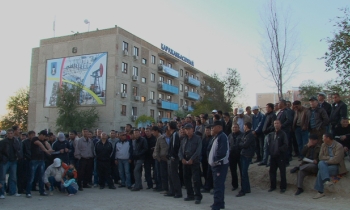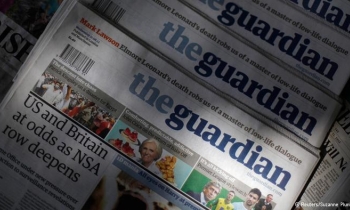Singapore's control mechanism over foreign media has once again come to light wth the recent incident involving Financial Times.
The newspaper had to pay damages to Prime Minister Lee Hsien Loong and his father Lee Kuan Yewas for defamation, and was also compelled to apologise from the Lee family. According to the prosecution, the article seemed to suggest that Lee Jr might have got his job due to the fact that he is the son of Lee Sr.
The Far Eastern Economic Review (FEER), owned by Dow Jones & Co is still fighting a defamation suit filed by the Lee family on the same grounds. The magazine has been slapped with a heavy fine and its non-payment has led to ban.
In its recent Worldwide Press Freedom Index, Reporters sans Frontieres (RSF) ranked Singapore 141st out of 167 countries. Singapore ranks just below Sudan.
The editorial page of Financial Times had carried an article titled "Sovereign funds try to put on an acceptable face" by Sundeep Tucker on September 29 which ignited the controversies. It dealt with the growth of sovereign wealth funds, particularly a new Chinese fund that was unveiled at the end of September. It also referred to growing concern over the acquisition of strategic industries by funds controlled by governments in Asia and the Middle East.
In the conclusion, Tucker stated that Temasek, the Singapore state investment fund run by Loong’s wife Ho Ching, is facing a fallout after acquisition of Shin Corp. Shin Corp is a Thai telecom group owned by former Prime Minister Thaksin Shinawatra. It is said that Temasek is facing a downfall led by this last year’s deal. It also pointed towards the latest rumour that Loon’s younger brother Lee Hsien Yang may replace Tai at DBS bank. The bank has the largest shareholding in Temasek.
Such reference in the article caused an apparent ire among the Lees, and allegations of libel due to which Financial Times had to apologise to the Lee family.
They had to mention in their apology that the article pointed towards a false allegation on the lee family that Lee Sr was instrumental in getting his son’s appointment as prime minister; that Prime Minister Lee Hsien Loong secured, or was instrumental in securing, the appointment of his wife, Ho Ching, as the Chief Executive Officer of Temasek Holdings (Private) Limited and Ho Ching is promoting her brother-in-law Lee Hsien Yang’s interests by securing his appointment as Tai’s replacement at DBS.
Lee Kuan Yew was himself Singapore's first prime minister, a post he held for decades until he stepped down in 1990. He remains in the prime minister's cabinet with the title "Minister Mentor".
In August, the Far Eastern Economic Review, was sued on the grounds of defamation and its publication was banned. The Lees had filed the libel suit against editor Hugo Restall over an article published in July.
The article that sparked the lawsuit, titled "Singapore's Martyr: Chee Soon Juan", comprised an interview with opposition politician Chee Soon Juan, the head of the Singapore Democratic Party. The article criticised the government's handling of a pay-and-perks scandal at the country's largest charity. The magazine also quoted Chee attacking the Lees. Chee said the authoritarian city-state would only change direction after the elder Lee’s death.
Singapore's leaders have won damages in the past from media groups, including the Economist, the International Herald Tribune (in 1994), Bloomberg (2002), and Finance Asia . No member of the Lee family has ever lost a case in a Singapore court.
The Far Eastern Economic Review had to pay damages earlier also. In 1989, a Singapore court found it guilty of libelling then-Prime Minister Lee Kuan Yew and ordered a monetary settlement of 230 000 Singaporean dollars.
Singapore has, for decades, taken a tough stance on the foreign media when they report on local politics. Since local media is subjected to heavy control, it is the only source of independent reporting on political, economic and other national issues. International media organisations have been banned, slapped with defamation suits or seen their circulations restricted when they published articles deemed offensive by the government.
While hosting a World Bank and International Monetary Fund (IMF) meeting in October 2006, PM Lee Hsien Loong spoke out against the international media, which he said were trying to impose “their norms and their standards†on the country in relation to freedom of expression. He justified control on the press as he said that Asian countries who got “the best financial results were those whose media was less aggressive."









